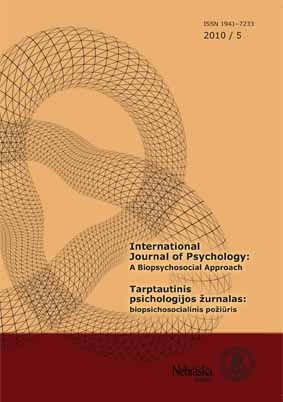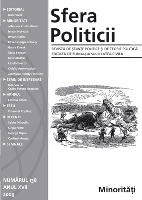
Toward Studies of Giftedness
Gabumų tyrinėjimų link
Keywords: protinis brandumas mokyklai; dėmesio intensyvumas; koncentracija ir perkėlimas; mental maturity for learning at school; intensity; concentration and displacement of attentions
Problema. Mokyklinės veiklos sėkmė priklauso nuo kognityvinių procesų išsivystymo lygio. Sėkmingas perėjimas nuo ikimokyklinės veiklos prie kokybiškai kitokios mokyklinės veiklos priklauso nuo protinio pradedančių lankyti mokyklą vaikų brandumo. Pradinėse klasėse mokymosi veiklos sėkmei svarbūs dėmesio raidos ypatumai. Tikslai. 1) Protinio brandumo mokyklai tyrimo tikslas – nustatyti vaikų protinio brandumo mokyklai lygį skirtingose ugdymo sąlygose; 2) dėmesio ypatumų tyrimo tikslas – analizuoti dėmesio ypatumus pradiniame mokykliniame amžiuje. Metodika. 1) Kontroliuojamo piešimo stebėjimo metodika; 2) juodų-raudonų skaičių lentelės metodika bei mokytojų apklausa. Tyrimuose dalyvavo 221 tiriamasis (60 parengiamojo mokyklai ir 161 pradinio mokyklinio amžiaus vaikų). Rezultatai. Protinis brandumo lygis priklausomai nuo ugdymo turinio nesiskiria. Ugdymo turinys yra susijęs su vaikų sugebėjimu susikaupti ir dirbti savarankiškai, o šios tiriamųjų elgesio ypatybės su jų protinio brandumo lygiu. Protinio brandumo lygis nepriklauso nuo tiriamųjų lyties ar motyvacijos lankyti mokyklą, tačiau mergaičių ir berniukų motyvacija skiriasi. Parengiamojo amžiaus vaikams daugiausiai sunkumų kelia instrukcijos įsiminimas ir vykdymas. Dėmesio intensyvumas, koncentracija ir perkėlimas, sugebėjimas atsiriboti nuo pašalinių stimulų bei išklausyti ir laikytis žodinės instrukcijos pradiniame mokykliniame amžiuje patikimai priklauso nuo amžiaus. Background. This article presents the results of two studies related to successful learning at school. Successful passing from pre-school to school activities depends on the mental maturity of children. Peculiarity of the development of the attention is important to successful learning at primary school. Aims and methods. The first study was aimed for evaluation of differences of learning different educational contents, and the Control Drawing Observation method was used. The second study had the aim to investigate the characteristics of attention of primary schoolchildren using the Black-Red Numbers Table method and interview with teachers. Results. Pupils learning different educational contents had the same mental maturity levels. But higher mental maturity level was related to concentration ability and work self-sustaining. There were found no gender or school motivation relationship with mental maturity, but girls and boys differed in school motivation. The main problems for pre-schoolaged children were related to the memorization and carrying out of instructions. It was found that intensity, concentration and displacement of attention and both ability to stand from the outside stimulus and the ability to listen and follow verbal instructions were significantly related to respondents’ age. The intensity and concentration was also related to the level of progressiveness at school. The results didn’t confirm the hypothesis that concentration of attention is related to the educational content.
More...
